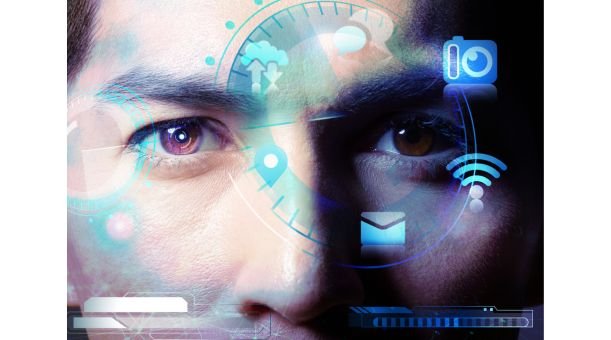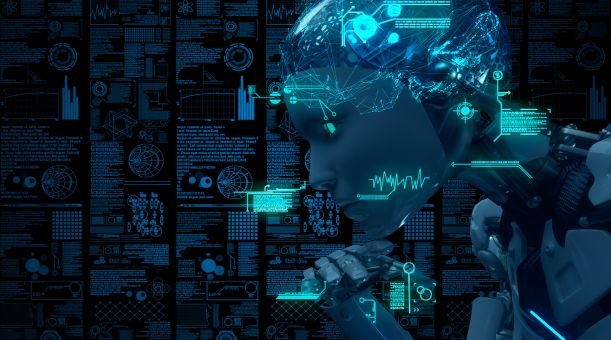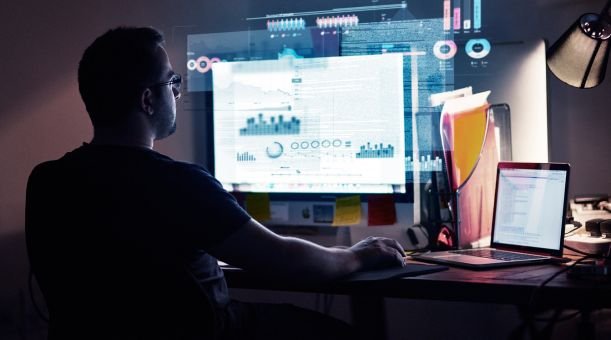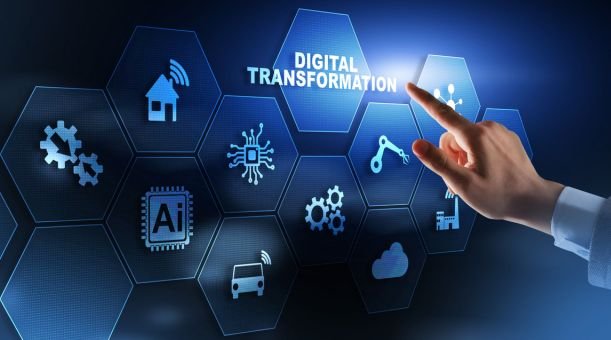Impact of new technologies on human life – Good, Bad & Ugly? how we live, work, and interact with each other.
Welcome to the 21st century, where the world is rapidly changing due to the evolution of technology. The past decade has seen numerous technological advancements that have completely transformed how we live, work, and interact with each other.
These emerging technologies have positive and negative impacts on our lives, from artificial intelligence, the Internet of Things, and blockchain to virtual reality, robotics, and autonomous vehicles.
On the one hand, they have brought tremendous improvements in healthcare, transportation, communication, and entertainment.
advancements in technology present us with the possibility of leading a healthy life for more than a century, augmenting our cognitive and physical capabilities, and regulating our emotional responses. Technology may allow us to manufacture our goods, monitor our thoughts, and influence our decision-making processes.
We will examine the good, the bad, and the ugly aspects of these technological advancements and their implications for our future. So fasten your seat belts and get ready for an exciting ride into the world of emerging technologies.
Is AI going to replace your jobs – potential vs. limitation

As we continue to observe the swift expansion of artificial intelligence (AI), many people have expressed concern about its impact on the job market. Some fear AI will replace human workers, leading to widespread unemployment and economic instability.
However, while it is true that AI has the potential to automate certain tasks and functions, it also has significant limitations that must be considered.
Finance
One of the industries that AI could significantly impact in finance. AI-powered algorithms are already being used to process and analyze vast amounts of financial data.
For example, ATMs have been around for decades, largely replacing the need for human bank tellers. However, AI is now being used to automate more complex financial tasks such as fraud detection
and investment analysis. While AI can certainly make these processes more efficient, it is likely to replace human, financial experts partially. These experts possess critical thinking skills, emotional intelligence, and other qualities that AI cannot replicate.
Hospitality and Tourism
Another industry that could see the introduction of AI is hospitality and tourism. Remote-controlled robot waiters are already being used in some restaurants and hotels, and they are becoming increasingly sophisticated.
However, while these robots can perform certain tasks, such as taking orders and delivering food, they must maintain the human touch essential to the hospitality industry. Humans provide a level of personalization and empathy that machines cannot match.
Medical
The medical industry is another sector where AI is making significant inroads. AI systems are being used to diagnose diseases such as lung cancer, and researchers are exploring the possibility of using AI to clone body parts.
However, while AI can certainly make medical diagnoses more accurate and efficient, more is needed to replace the expertise of human medical professionals. Medical professionals possess a level of empathy and critical thinking skills that are essential to patient care.
Automotive
AI is also playing an increasingly important role in the automotive industry. Autonomous vehicles are presently operating on the streets, and they have the potential to significantly reduce the number of accidents caused by human error.
However, while AI can certainly improve driver safety, it cannot replace the experience of human drivers. Humans can make complex decisions and judgments that AI currently cannot replicate.
Cybersecurity
Cybersecurity is another industry that could benefit significantly from AI. AI-powered security systems can detect and prevent cyberattacks more efficiently than humans, and they can also learn from past attacks to improve their defenses.
However, AI cannot replace the need for human cybersecurity experts who possess the critical thinking skills and experience needed to respond to emerging threats.
Job Search
AI is also used in the job market to help match job seekers with open positions. Resume scanning algorithms are used to identify candidates with the skills and qualifications needed for specific roles.
While this can certainly make the hiring process more efficient, it cannot replace the need for human recruiters who possess the empathy and intuition needed to identify the best candidates for a particular role.
AI will take your job later, but you may have to work with it.

AI (Artificial Intelligence) is a growing field making significant progress in various industries. Many experts and companies investing in AI believe it will only partially replace humans in the workforce. However, as AI technology becomes more prevalent, it transforms how people work.
Finance:
AI enhances Chatbots for quicker customer service, cybersecurity, and back-end operations in the finance industry. The technology can also accelerate the discovery of fraud and monitor transactions for personalized financial advice.
Some companies are testing Chatbots powered by OpenAI’s GPT-4 for research and data analysis. However, AI also introduces risks, including frustrating customers with too much automation, breaking privacy laws, and potentially discriminating against lower-income people. Workers must be familiar with AI tools to keep up with these changes.
Healthcare and Pharmaceuticals:
AI is also transforming the healthcare industry. The technology can be used to manage electronic medical records and aid in trials of coronavirus vaccines.
It can also identify hot spots, targets for drug discovery and drug effects, blood cancer treatment, surgeries with augmented reality, and AI for cancer screenings. The effect on jobs is that workers must digitally upskill to use the technology and create space for AI to be a thought partner.
Retail:
AI is used in the retail industry to track the market price of items and adjust the prices of thousands of products to increase profits. Walmart is one company that serves as a tech pilot for AI in its virtual voice assistant.
Drawbacks:
One of the major drawbacks of AI is that face recognition software occasionally has issues. Additionally, while bots appeared to have been well-received, more AI could mean more risks.
Impact on Jobs:
As AI becomes more prevalent, employees will become used to using technology and data more frequently. This could lead to a change in job responsibilities and required skills. However, AI could also create new job opportunities, especially in data analysis and programming fields.
Writing and Marketing:
AI is also making significant advancements in the writing and marketing sectors. It generates digital graphics, conversational language, code, and summaries of long papers. OpenAI models can write code, and ChatGPT can co-write and illustrate books. However, it is important to double-check AI-generated items as some companies have been sued for scraping copyrighted materials.
How can businesses and industries best integrate new technologies into their operations?

Businesses and industries can integrate new technologies into their operations by following these steps:
- The first step is identifying areas within your business that can benefit from new technologies. This could include streamlining processes, automating tasks, or improving customer experiences.
- Once you have identified areas for improvement, research and select appropriate technologies that can address your specific needs. Consider factors such as cost, scalability, and ease of implementation.
- Develop a plan for integrating the new technology into your operations. This should include timelines, training, and testing procedures. Ensure all stakeholders know the changes and are on board with the implementation plan.
To ensure effectiveness, it is important to consistently monitor and assess the effectiveness of the new technology. Collect data and feedback to determine if the technology achieves the desired results. Use this information to make adjustments and improvements to your implementation plan.
Stay up-to-date with new technologies and innovations in your industry. Continuously explore new ways to integrate technology into your operations to stay ahead of the competition.
What ethical considerations should be considered when developing and deploying new technologies?
When developing and deploying new technologies, ethical considerations should be taken into account to ensure that they do not cause harm to individuals or society as a whole. Some ethical considerations that should be taken into account include the following:
Privacy:
New technologies should respect individual privacy rights and not collect, store, or use personal data without explicit consent.
Bias and discrimination:
The development of new technologies should be free of bias and discrimination, ensuring that they do not perpetuate social inequalities or stereotypes.
Transparency:
The use of new technologies should be transparent, and users should be informed about how their data is collected, stored, and used.
Accountability:
Companies and individuals should be held accountable for the use of new technologies and any negative consequences that may arise.
Safety and security:
The protection and well-being of individuals and their data should be a top priority when developing and deploying new technologies.
Social and environmental impact:
New technologies’ social and environmental impact should be considered to ensure that they do not harm the environment or negatively affect communities.
How can governments and regulatory bodies balance the benefits and risks of new technologies for society?

Governments and regulatory bodies have an important role in balancing the benefits and risks of new technologies for society. Here are some ways they can achieve this:
- Governments and regulatory bodies can conduct thorough risk assessments before deploying new technologies. This can help identify potential negative consequences and inform decisions about mitigating or managing them.
- Governments and regulatory bodies can require companies to be transparent about the technologies they are developing and deploying. This can help ensure that the public knows the risks and benefits of these technologies.
- Governments can create policies and programs encouraging innovation while ensuring that new technologies are developed and deployed responsibly. This can include funding research and development, tax incentives, and regulatory sandboxes to test new technologies.
- Governments and regulatory bodies can create guidelines that companies must follow when developing and deploying new technologies. This can help ensure that technologies are developed in a way that aligns with societal values and norms.
- Governments and regulatory bodies can engage with stakeholders, including industry, civil society, and the public, to ensure that the benefits and risks of new technologies are understood and addressed.
Conclusion
while the fear of AI replacing human jobs is not completely unfounded, the reality is more nuanced. The use of technology is increasingly widespread across diverse industries, from finance to healthcare and retail. Still, it is mostly used to enhance and augment human capabilities rather than replace them entirely.
However, there are still risks associated with using AI, such as privacy concerns and potential discrimination against certain groups of people. As such, it is crucial for employees to become familiar with AI tools and for companies to use them responsibly.
Ultimately, AI will continue to play an increasingly important role in the workplace. It is up to us to adapt and use it to our advantage while mitigating any negative consequences.
Impact of new technologies on human life
Impact of new technologies on human life
Impact of new technologies on human life
Impact of new technologies on human life

